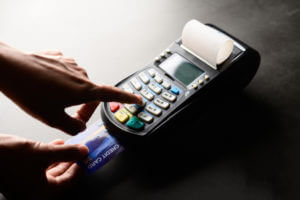
Why Is It A Good Idea To Keep Your Receipts?
Whether you are spending as an individual, for other people or for a business, it is always important to keep your receipts. Have you noticed whenever you are wanting to backtrack, return an item or you have some sort of financial enquiry, the person on the receiving end will always refer to a receipt? A large percentage of people may see receipts as a waste of time. After all, with our society moving into a cashless environment and the use of cards are contactless payments increasing, who wants to be carrying around multiple pieces of paper? However, on the other hand, others depend on them throughout their day to day lives. So, why is it a good idea to keep your receipts?
Receipts Help Track Your Spending
In order to become financially stable, you need to ensure that your spending and saving is in order. To do this, we advise finding a budgeting technique that benefits you and sticking to it. As previously mentioned, this process is not something that happens overnight. In fact, it could take multiple months or even over a year. Whether you have found the perfect budget or not, making use of the receipts you are given is essential. In order to ensure you do not overspend, receipts should be reflected upon. Having some sort of physical proof of purchase allows you to manage your finances effectively, meaning you will not forget about any purchase, especially if it’s small.
We advise collecting a receipt following every purchase and keeping them in a safe place. This will allow you to reflect on them at the end of the day, the week or even the month. This way, you are able to keep on top of your finances and hopefully move forward in the correct financial direction.
Item Returns
Imagine splashing the cash on something you’ve been wanting to purchase for a while and it not being perfect. Perhaps you would like to complete an exchange or even return the item completely? Well, without a receipt a lot of popular shops would not allow this to happen. A receipt shows proof of purchase. They usually contain valuable information including dates, times and specific store locations. This allows staff to identify all the necessary details they need to give you a hassle-free experience.
You Could Make More Money
Believe it or not, saving your receipts could help to build your bank account. This can be done through external legitimate websites or even simple price matches. Scanning your receipts on certain websites like TopCashBack.co.uk will earn you cash back on multiple purchases. The amounts you earn will not be high, but if you manage to complete tasks for several purchases you will soon see a difference in your bank. However, before inserting any information into any website you come across you should ensure that it is safe to do so to avoid any scams or other issues.
Receipts For Reimbursements
Have you ever been in a position where you have purchased something for work or for a friend and you are needing to be reimbursed? Generally, it is very difficult to reimburse without proof of a document, especially in the workplace. Receipts allow you to show proof of the purchase. Therefore, making the process of justification that bit easier for you, your work team or your friends.
Making large purchases can be scary, you never know what could happen, whether something could get damaged or stop working. Nobody wants to lose out on large sums of money, especially if money is tight. Unfortunately, not everybody is aware of how important these records can be, as a consequence, their actions could potentially lead them to financial damage resulting in aspects like debt or even bad credit.
How Long Should You Keep Your Receipts?
According to www.gov.uk, you should always keep business records for as long as possible. To be exact, the website states that ‘You must keep your records for at least 5 years after the 31 January submission deadline of the relevant tax year.’ Therefore, we advise you to take the time to upload these records onto some sort of digital storage device. This will keep all of the information safe meaning they will not get unintentionally lost over the years.
